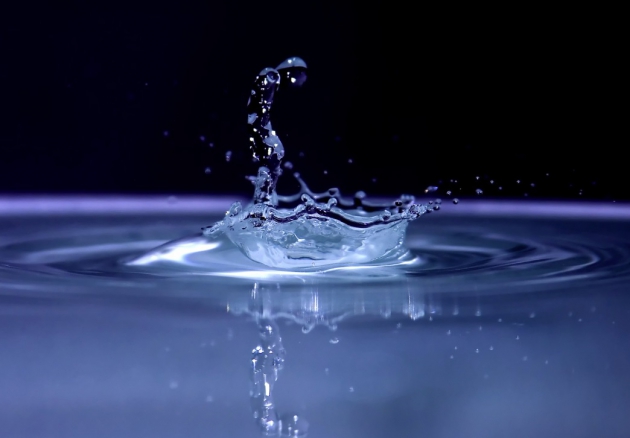Water treatment is an essential cornerstone of modern civilization, quietly working behind the scenes to ensure the availability of safe and clean water for our daily needs. As our world grapples with increasing environmental pressures and a growing global population, the importance of water treatment options cannot be overstated.
Water Purification
Water purification stands as the cornerstone of a water treatment company’s mission. Raw water drawn from a variety of sources, including rivers, lakes, and groundwater water often contains impurities, both visible and invisible, that must be removed to make it safe for consumption and industrial use.
The purification process begins with the removal of physical impurities through sedimentation and filtration. Sedimentation allows heavier particles to settle at the bottom of a basin, while filtration involves passing water through layers of sand, gravel, or activated carbon to trap smaller suspended particles. These initial steps help clarify the water, making it suitable for further treatment.
Disinfection
Disinfection is a critical function of water treatment. Even after physical impurities are removed, water may still harbor harmful microorganisms such as bacteria, viruses, and parasites. These pathogens pose a significant health risk if consumed untreated.
To ensure water safety, variety of disinfection methods such as chlorination or ultraviolet (UV) water systems are offered. Chlorine is a common disinfectant used to kill or inactivate these microorganisms. UV water systems, on the other hand, disrupts the DNA of pathogens, rendering them harmless. The goal is to eliminate the risk of waterborne diseases and provide the community with water that meets strict health standards.
Chemical Treatment
Chemical treatment is an indispensable aspect of water purification. Water treatment systems utilize various chemicals to optimize the treatment process. Coagulants, for instance, are added to promote the aggregation of fine particles, making them easier to remove during sedimentation and filtration. This enhances the overall efficiency of the treatment process.
Furthermore, chemical treatment includes adjusting the pH level of the water. Maintaining the right pH balance is crucial, as water that is too acidic or alkaline can corrode pipes and compromise water quality. Water treatment systems use pH adjustment chemicals to ensure the water’s pH falls within the acceptable range.
Filtration
Filtration is a fundamental process in water treatment, following initial sedimentation and chemical treatment. After these stages, water is directed through various types of filters, typically consisting of sand, gravel, or activated carbon. These filters serve as the final barrier to remove any remaining particles, suspended solids, and some organic contaminants.
Filtration enhances water clarity and removes fine particulate matter that could affect the water’s taste and appearance. It is a crucial step in producing clean and aesthetically pleasing water that meets consumer expectations.
Water Quality Testing and Monitoring
Water treatment companies in Carp, Ottawa, place a strong emphasis on water quality testing and continuous monitoring. Regular testing is conducted to evaluate various parameters, including pH levels, turbidity (clarity), chemical concentrations, and microbial content. These tests ensure that the treated water consistently meets stringent regulatory standards.
By monitoring water quality closely, these companies can detect any deviations or anomalies in the treatment process promptly. This enables them to make necessary adjustments to maintain safe and consistent water quality, preventing potential issues from reaching consumers.
Reputation and Experience
It’s essential to research the reputation and experience of water treatment companies in Carp. Look for a company with a solid track record of providing reliable and effective water treatment services. Consider their years of experience in the industry and whether they have successfully served both residential and industrial clients. Customer reviews and testimonials can provide valuable insights into their reputation and customer satisfaction.
Certifications and Compliance
The best water treatment companies should hold relevant certifications and comply with local and national regulations. Ensure they are licensed by relevant authorities and follow industry standards and guidelines. Certifications from organizations like NSF International or the CanadianWater Quality Association (CWQA) can be indicative of their commitment to quality and safety.
Technological Capabilities
Water treatment technology is continually evolving. Ensure that the chosen company offers state-of-the-art technologies and equipment for water purification and treatment. Advanced technologies can lead to more efficient and environmentally friendly water treatment processes, ultimately benefiting both the consumer and the environment.
Customized Solutions
Different clients may have unique water treatment needs. A reputable company should be capable of offering customized solutions tailored to your specific requirements. Whether you need residential water softening or industrial-scale water purification, the company should have the expertise to design and implement a solution that suits your needs and budget.
Customer Support and Maintenance
Consider the level of customer support and maintenance services offered by the company. Reliable customer support ensures that you can get assistance whenever you have questions or issues related to your water treatment system. Additionally, inquire about their maintenance plans to keep your water treatment equipment in optimal condition. Regular maintenance can extend the lifespan of your system and ensure it operates efficiently.
Conclusion
Choosing the appropriate water treatment company in Carp, Ottawa, Canada, is crucial for assuring the delivery of safe and clean water. Consider reputation, certifications, technological prowess, customized solutions, and customer service when making a decision. By evaluating these factors thoroughly, you can select a company that not only suits your water treatment needs but also adheres to the highest quality and compliance standards.

